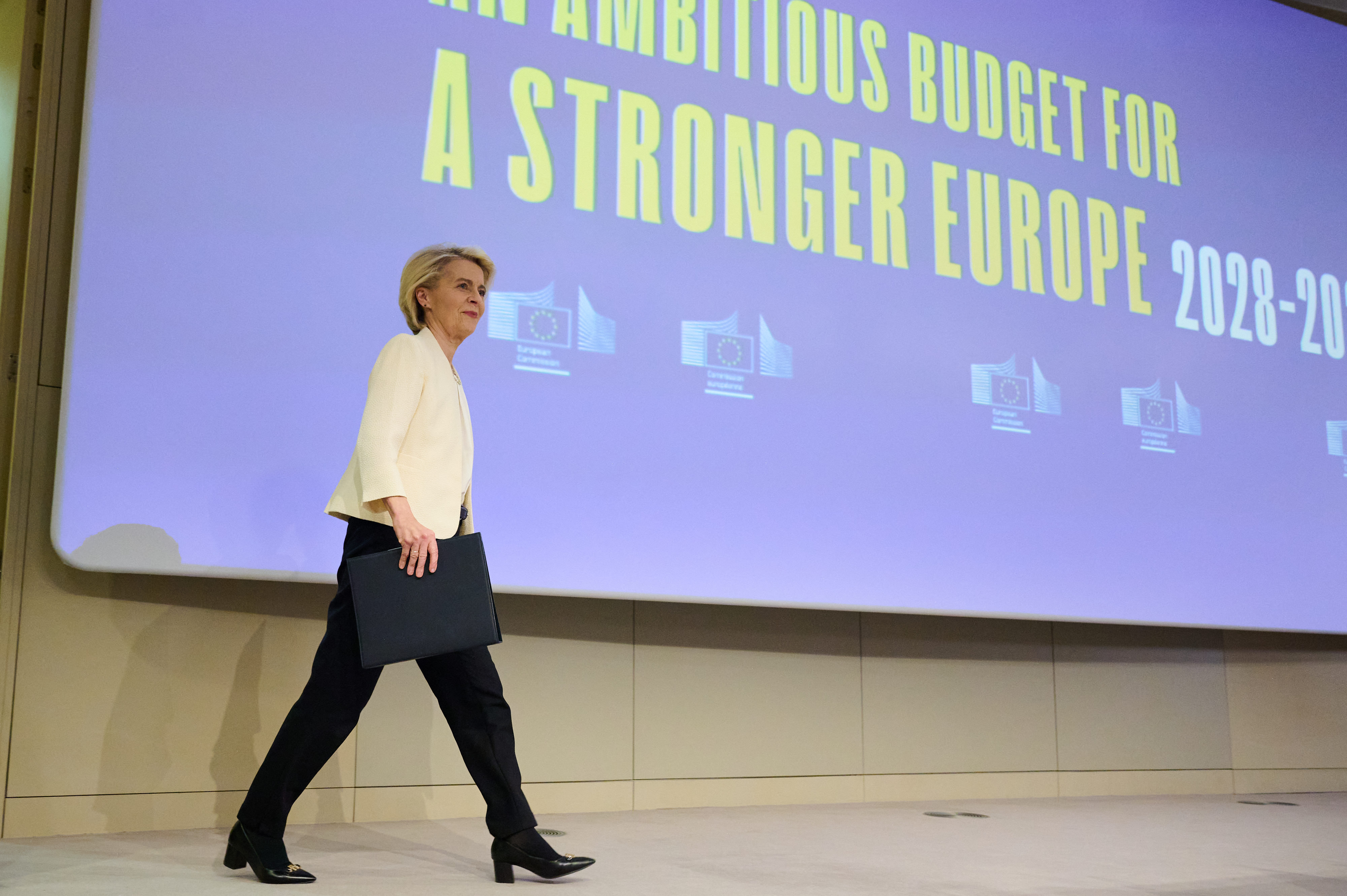Environmental groups lament insufficient climate funding in EU budget draft
The European Commission's proposal for the bloc's long-term budget has been met with criticism from environmental associations and climate NGOs. In its Multiannual Financial Framework (MFF), the Commission proposed raising the bloc's budget between 2028 and 2034 to almost two trillion euros, with 35 percent of this sum dedicated to "programmes and activities on climate action and environmental objectives."
"The current proposal fails to increase available finance for climate and other environmental objectives," CAN Europe wrote. While the proposal corresponded to around 700 billion euros set aside for these measures, it represented a cut compared to the current EU budget, the climate NGO calculated.
At least 50 percent of the budget in the MFF should be allocated to climate and environmental protection, according to association German Nature Conservation Ring (DNR).
"Anyone who wants to secure Europe's future must take climate and nature conservation seriously as a business location factor and prioritise them in the budget," said DNR managing director Florian Schöne.
Agricultural subsidy reform "step backwards"
The Commission's proposal to reform subsidies for farmers under the Common Agricultural Policy (CAP), which dictates how much EU money goes to agricultural subsidies, also faced criticism from climate NGO Environmental Action Germany (DUH). The group called the proposed reform "a major step backwards" and warned that it would lead to countries being allowed to "award subsidies even without clear public interest criteria".
WWF Germany lamented that the LIFE programme – the EU's only funding instrument exclusively for the climate and environment – would be absorbed into a new European competitiveness fund, which is set to support industrial policy. "Healthy ecosystems are the foundation of a functioning economy and society," said Matthias Meißner, policy head at the NGO. "Instead of strengthening nature conservation, it is being relegated to a secondary issue."
Chiara Martinelli, head of CAN Europe, added: "Every single budgetary decision from now to 2040 is vital for our planet. Despite some positive elements, the Commission’s proposal falls short of ensuring that the EU’s next long-term budget contributes enough to filling the additional investments needed for achieving ambitious climate targets, as well as closing the biodiversity spending gap."
German government rejects increase in EU budget
The Commission's proposal marks the start of a two-year process to agree on the future EU budget and revenue system. Before being adopted, it will be discussed and agreed upon in the European Parliament and across Member States.
The German government said it would not accept the EU's budget proposal. "A comprehensive increase in the EU budget cannot be justified at a time when all member states are making significant efforts to consolidate their national budgets," a government spokesperson said in a statement.
The EU budget is formed by Member State contributions and also includes revenues from the Emissions Trading System (ETS) and, in future, revenue from the CO2 border adjustment mechanism CBAM.
While Germany is the biggest contributor to EU funding, the country has been fiercely debating public finances and the role of its national ceiling on new borrowing, the debt brake, in recent years.
After the previous coalition government under chancellor Olaf Scholz collapsed due to disagreements over new debt and the budget, the new government under chancellor Friedrich Merz immediately reformed parts of the debt brake to allow greater defence spending. It also set up a special fund outside the regular budget worth 500 billion euros to finance infrastructure and climate neutrality projects over the next decade.

